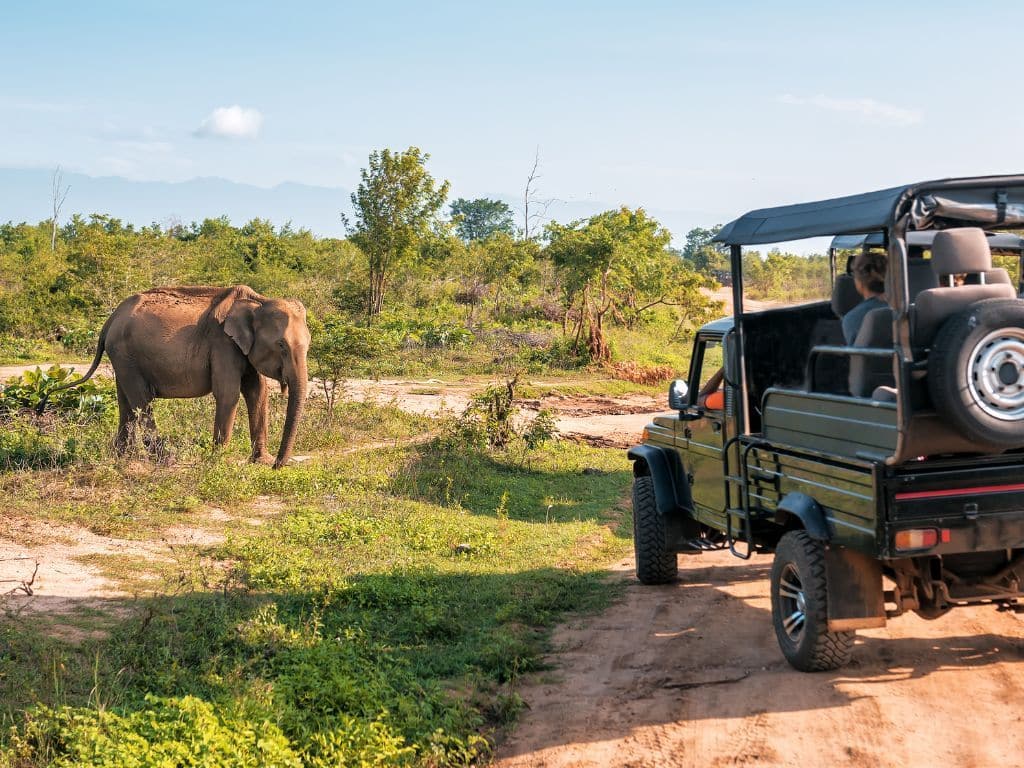
There are countless reasons to book a wildlife safari. It of course gives you the opportunity to observe and photograph a wide range of exotic animals, but at the same time can be a rewarding experience knowing your dollars are often supporting local communities and conservation efforts.
Whether you’re thinking of an African safari in the Serengeti or Okavango Delta in search of big cats and elephants, an Indian safari to observe tigers and rhinos, or the Amazon to seek out elusive jaguars and anacondas, no two safari trips are ever the same due to the simple fact nature is often unpredictable.
While you may be busy making a list of all the animals you wish to see and which parks to visit, you should also put some thought into what you pack for a safari holiday. Packing for a safari may be a bit different than you are used to for other holidays, so we thought we’d offer some tips for things you should definitely take with you and items that are better left at home.
As with any holiday, one of the most important items you’ll want to have on your travels is actually something you can’t pack and that’s travel insurance. There are many great comprehensive travel insurance policies that are perfectly suited for safari holidays worldwide.
Essentials to Pack
Let’s begin with the basics and cover essential items you should always bring with you on any holiday, but especially so with wildlife holidays. Things like your passport and credit cards are a given, but you may need to carry cash when on a safari. Not all places in remote areas that offer safaris are able or willing to accept credit card payments. Cash is also often necessary for tipping guides and porters.
You want to be sure to pack plenty of essential medications you are taking, along with medications that prevent or treat diseases and illnesses like malaria or diarrhoea. Staying on that topic, be sure to get any necessary immunisations such as your yellow fever vaccination before your trip.
Lastly, be sure to bring along any toiletries you may need. Remote safari camps may not have a great selection of toiletries and the ability to purchase products at nearby stores may be limited or impossible.
Luggage
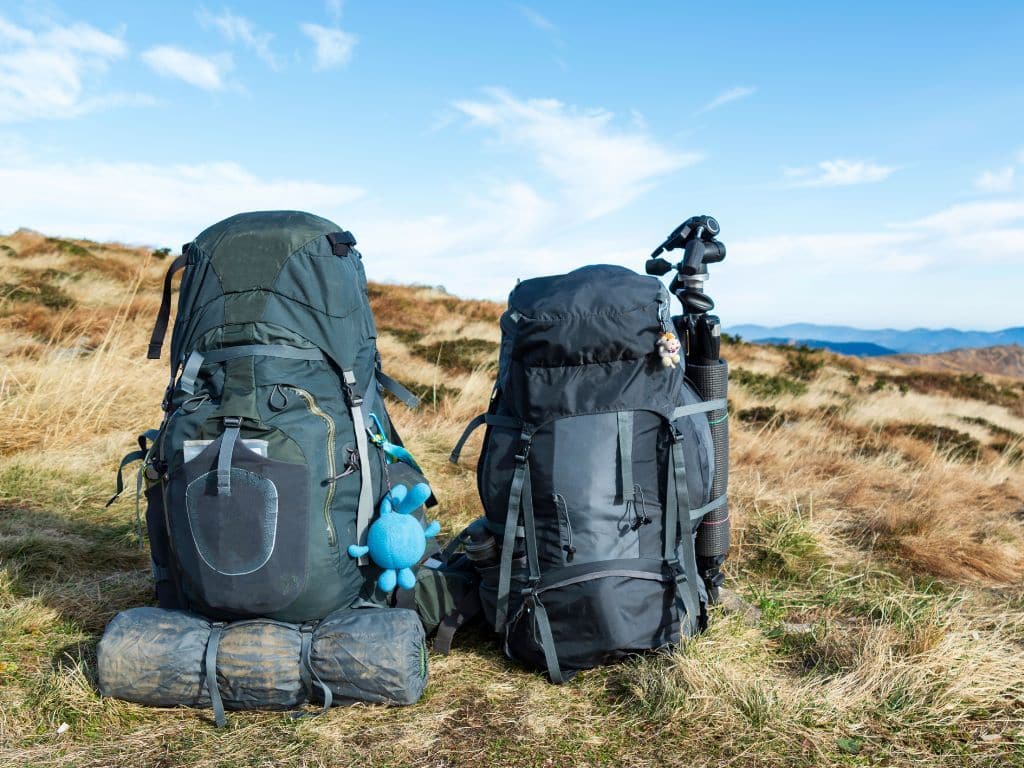
Equally as important as what you pack is what you pack your belongings in. This is one area where safari holidays require you to plan ahead when it comes to choosing luggage. Many safari holidays require flying in small charter planes which usually have rigid restrictions in terms of weight/size allowance and the type of luggage allowed.
You may want to contact your safari tour operator for suggestions based on your specific trip but generally, you will need to forego using any hard-shell luggage. You will also want to avoid suitcases with wheels for several reasons including the fact they add weight, often prove useless in many safari locations, and may even be prohibited on certain tours or flights.
Most safari tour guides recommend sticking with duffel bags or backpack-style bags. They are easier to handle on safaris, reduce your overall packing weight, and will adhere to most restrictions. Backpacks are especially useful for walking safaris and gorilla trekking.
Make sure the luggage you choose is weatherproof and has ID tags or better yet tracking devices attached. You may also want to throw in an empty duffel bag in case you pick up souvenirs along the way.
Clothing
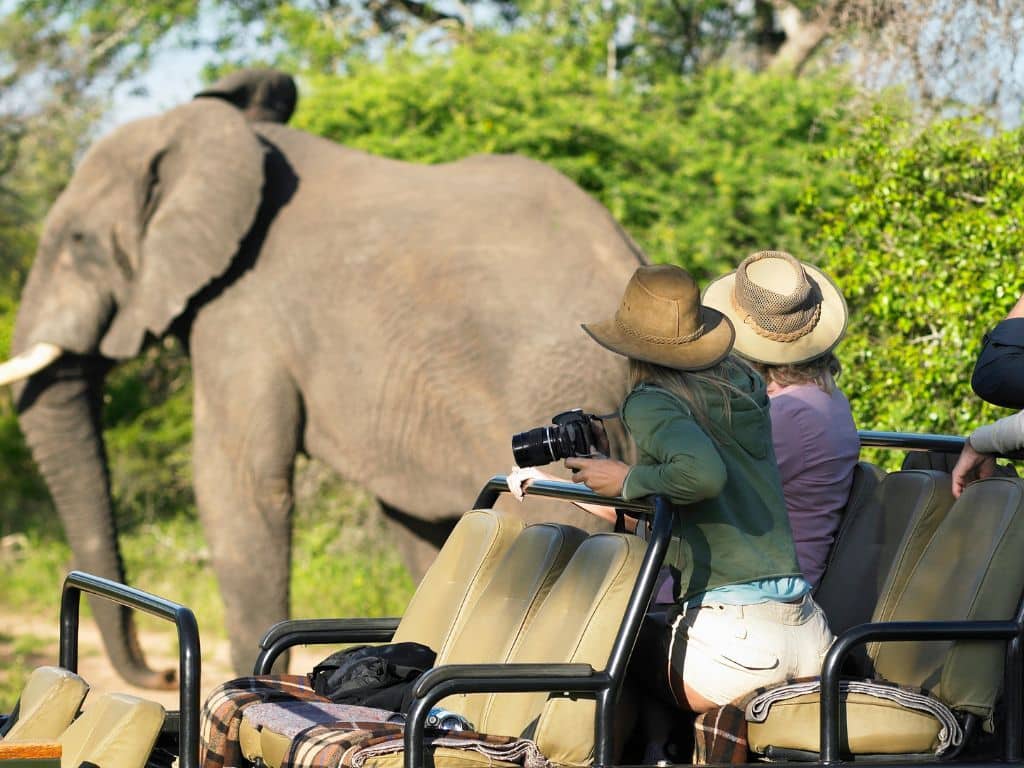
One of the most important areas to focus on when it comes to packing for a safari is clothing. Dressing for a safari is very different than a trip to London or Rome. Because you may have to adhere to strict luggage weight and size limits, stick to lightweight, non-bulky clothing.
Most safari destinations will be warm, however packing some long pants, long shirts, and a lightweight jacket can come in handy for cooler night game drives in search of nocturnal animals.
You don’t need to go overboard with bringing a lot of clothing since many safari camps provide laundry services. Ask ahead of time if in doubt. Stick to neutral earthy tones when selecting colours. Bright colours can often spook wildlife, while both blue and black can be more apt to attract various biting insects.
Choosing colours that help you blend in is especially important for walking or trekking safaris. That being said, do not pack any camouflage clothing. Due to its connotation with the military, wearing such clothing may be prohibited in certain African regions or nations like Zimbabwe for instance.
Undergarments should be breathable and moisture-wicking. Utilising the three-layer system of dressing may also prove beneficial on some safaris, however, most often you can expect warm temperatures. Avoid cotton clothing as it often takes a long time to dry and can retain odours more.
Not only will having long sleeves and pants keep you warm on chilly nights, but they are also good at preventing insect bites. If you are planning a wildlife experience in tropical environments like the Amazon or gorilla trekking, you will then want to also have waterproof clothing including pants, a jacket and socks.
Don’t forget to also bring bathers as many safari lodges offer up refreshing pools you will definitely want to take advantage of after a long day of riding in a safari jeep or trekking.
It’s also wise to bring a pair of comfortable thongs to wear around camp as an alternative to your hiking boots or runners. Not all safaris will require super rugged hiking boots. You can usually get away with simple runners on jeep safaris.
Final tips include bringing a wide-brimmed hat for the same reasons you’d wear one in Australia. If you are planning a hiking or trekking safari, you may want to invest in some waterproof gaiters if venomous snakes are likely to be present.
Electronics

More than likely, you will be bringing along a camera to capture incredible wildlife images. Just remember to pack extra batteries since some tented camps may be without electricity to charge your batteries. You will also want to check whether you will need to bring a universal plug adapter to charge or use your various electronics.
Many people who go on safaris also suggest bringing a power strip which will allow you to charge multiple items at one time. Many smaller lodges or camps often have a very limited number of power outlets.
Safaris can prove rainy or quite dusty, so invest in a weatherproof cover for any expensive electronics like cameras, phones, and laptops. You can leave your drone at home since most safaris you book will prohibit their use.
You may also be surprised to learn that there may be restrictions on phones while on safari. Some safaris prohibit their use in public areas or while on game drives.
At the very least, you may be asked to switch your phone to silent mode and disable location tracking which tragically has been used by poachers to locate threatened animals like rhinos when photos are posted online. For this reason, avoid sharing your wildlife photos on social media with geotagged locations.
Lastly, keep in mind that electronics that require a lot of power like hair dryers or certain shavers may not be supported by certain safari camps.
First Aid Kit
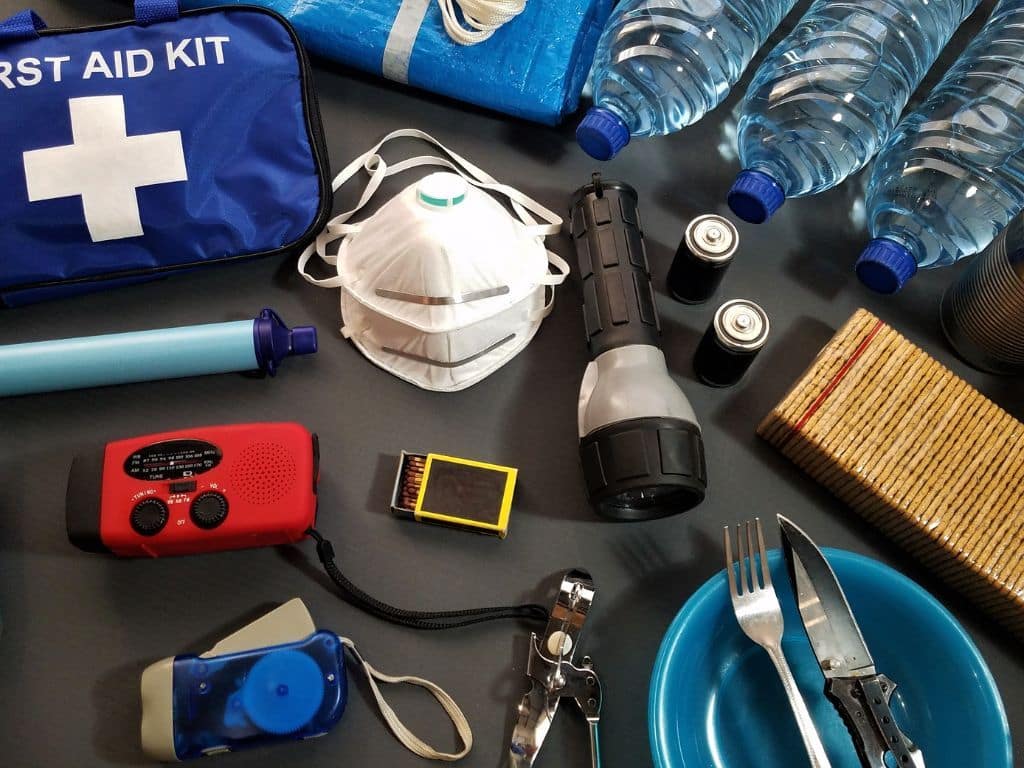
Most safari tours and lodges will have access to a first-aid kit that can treat minor ailments but if you are doing a self-drive safari or exploring national parks on your own you will want to take your own kit.
Safari locations can often be located a great distance from hospitals or towns for that matter, so being able to tend to ailments or injuries yourself is vital. Your kit should contain adhesive dressing strips, triangular bandages, alcohol swabs, tweezers, antiseptic skin swabs, first-aid guide, disposable gloves, itch cream, eyewash, tweezers, scissors, etc.
You may also want to include various medications for things like diarrhoea and maybe even a water sterilization kit depending on what type of safari you are going on.
Additional items that often come in handy for safaris include hand sanitiser since access to running water may be limited at times, moisturizer since African safaris can dry out your skin rather quickly, and sunscreen. Maybe even having a roll of toilet paper on hand may come in handy since many public bathrooms in rural Africa do not always provide any.
If you do manage to fall ill, this is when you will be glad you have a comprehensive travel insurance policy that provides coverage for a variety of overseas medical treatments.
Other Items
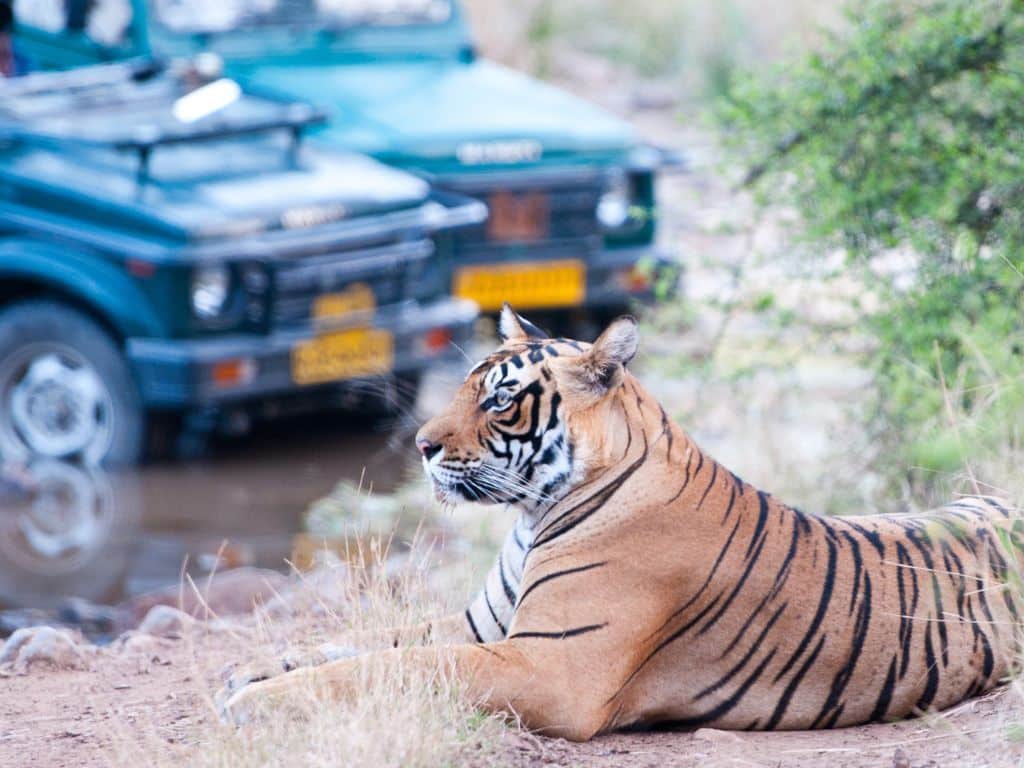
We recommend packing a wildlife guidebook for the location you are visiting since it can provide you with a valuable resource when it comes time to identify the animals you are seeing each day. This is especially useful if you are planning a self-drive safari where you won’t have a knowledgeable local guide at your side.
A guidebook that covers the various parks and reserves can also be extremely useful for providing you with directions and maps, animals you can expect to encounter, safety tips, and facts about the places you visit.
Packing a torch is another great idea as is maybe a head torch which is especially useful around camp at night. Safari tours often provide you with torches but you don’t always know what quality will be on offer, so if you want to be assured of a quality high-powered one it’s best to bring your own.
Children
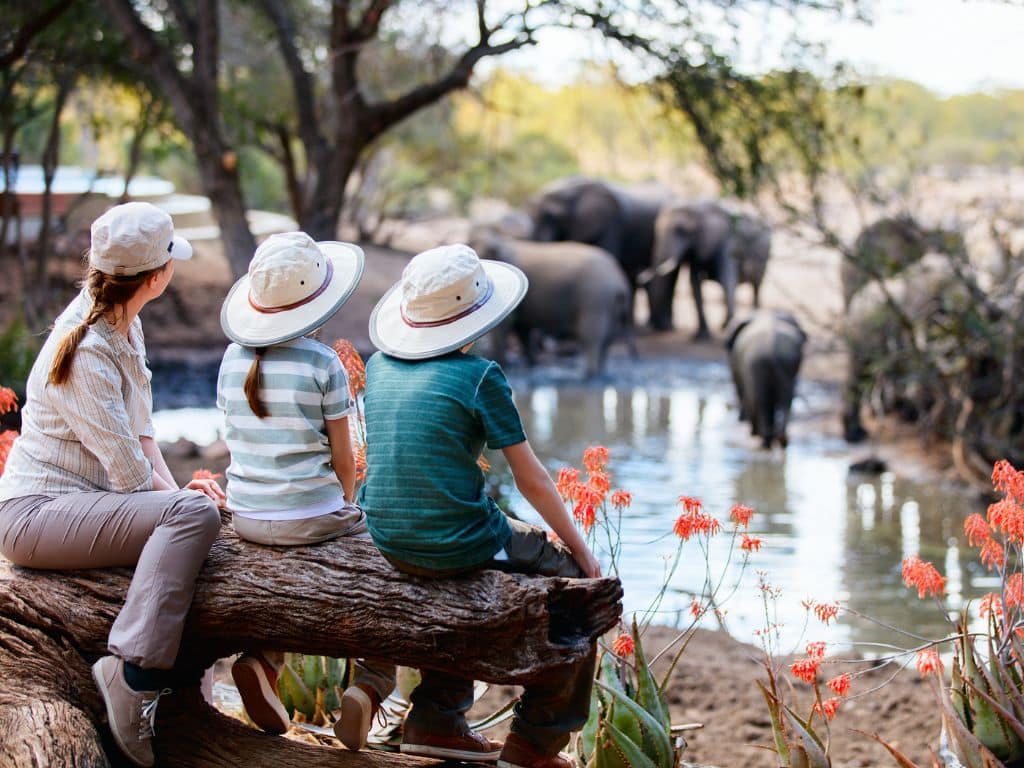
While children aren’t something you have to worry about packing, you do need to research whether they will be allowed on your safari. There are often restrictions in terms of minimum age requirements that are allowed on certain safaris.
Some safari booking companies set the minimum age at 6 and some at 8 years of age. You will need to check with your tour for specific details. For gorilla trekking and African walking safaris, the minimum age may even be as high as 15 years of age.
The restrictions are in place for both their safety and the enjoyment of others on the safari. Animals often act more unpredictably with small children and kids may have a more difficult time adhering to stricter regulations that are required on safaris.
While younger children may not be allowed to go on game drives or certain treks, they may be allowed to stay at safari lodges where childminding services may be provided. Certain camps may require you to book out the entire camp to bring children.
